Whether in the executive branch or in Congress, the Revolving Door Project believes that political leaders need to think more creatively and energetically about how they can leverage the full range of their powers to advance the public interest. Over the last several years, this motivating principle has led us to dedicate significant time and energy to convincing the House Democratic majority of the need for congressional oversight that spotlights executive branch corruption and corporate wrongdoing. In the context of the Trump administration’s lawlessness and beyond, congressional oversight is a powerful — indeed essential — tool to uncover governmental and corporate abuse, enforce checks and balances, channel governmental resources towards issues of widespread public concern, and galvanize long-lasting political support. We at the Revolving Door Project believe that Congress must exploit this potential.
Through op-eds, blog posts, letters, and interviews, we have sought to encourage congressional oversight at practically every turn. In all of that work — from pushing Rep. Richard Neal to request Trump’s tax returns and arguing in favor of impeachment to advocating aggressive pandemic-related oversight and meaningful investigation of the damage Trump caused to governing institutions and the civil service– our case has rested on a set of core observations:
Good Policy
Oversight has long been considered an essential component of congressional power and for good reason. In order to craft laws and continually institute necessary reforms, lawmakers need access to a wealth of information about the problems for which they seek solutions. Oversight also functions as a mechanism by which to enforce congressional will; investigatory powers help Congress to ensure that the laws it has written and passed are being carried out as intended.
Where voluntary compliance is not forthcoming, Congress has a variety of legal powers to ensure that it has access to the information it needs. Together with its considerable reputational and convening authority, these powers make Congress one of the most powerful fact finding institutions in the country. We at Revolving Door Project have consistently encouraged lawmakers to make use of this exceptional power to surface otherwise out of reach information about the Trump administration’s actions and corporate America’s behavior. Despite this administration’s unprecedented obstructionism, Congress nonetheless has the ability to obtain great swaths of information that are unavailable to almost any other party.
Even when investigations do not lead directly to legislative action in the near-term, they may still produce clear real world results. It is not uncommon for both public and private sector officials to resign following appearances at particularly humiliating congressional hearings. Further, the very knowledge that Congress is investigating may discourage lawbreaking in the public and private sectors alike.
Good Politics
For those lawmakers unconvinced by these benefits, there is at least one other reason to engage in aggressive, populist oversight: it’s great politics. As money floods our political system and even more overt forms of governmental and corporate corruption abound, many have lost faith that anyone in government has their interests at heart. Oversight that holds powerful actors — like practically any of this administration’s senior officials, BigTech, for-profit colleges, Wall Street, and on and on — to account for their transgressions can help to reverse the tide of cynicism by demonstrating that the government can work in the public interest.
It is also a particularly powerful tool in the face of a presidential administration like Donald Trump’s. While Trump utterly failed at the task of being president, he successfully commanded the conversation over his four years in office. By inundating the public with erratic statements and alarming, often violent actions, Trump made it difficult to keep up or to make sense of what was happening. Oversight, however, could have helped lawmakers to organize these chaotic elements into a single, commanding narrative: in this case, that Trump worked from his first day in office to enrich friends and benefactors while contemptuously stomping on everyone else.
Oversight in Trump’s Wake
Although Trump’s time in office has come to an end, there is an enduring need for oversight to uncover the full extent of the damage he caused. Although Trump waged many of his wars in public, lawmakers cannot ignore the possibility that other attacks were being carried out more quietly behind the scenes. Whether in the form of politicized hiring processes, corruptly awarded contracts, office reorganizations, or any number of other moves, left unaddressed this variety of attack could interfere with effective governance for years to come.
For that reason, it will be essential that lawmakers resist the urge to simply move on from what has just occurred under Trump. Only by developing a comprehensive accounting of his administration’s abuses will it be possible to reverse them and ensure that they are not repeated. And for every Republican who cries that it is “politics” to identify new ways in which Trump’s corruption and incompetence weakened our country — if the facts have a political bias and the outcome is to punish a political party for its leader’s misdeeds, well, isn’t accountability what it is needed to make democracy work?
And if this means that the Biden Administration is on its toes to avoid repeating the post-presidency recriminations Trump is owed — that would be a nonpartisan good thing!
Below you will find some of the project’s writing and research on congressional oversight. For a selection of quotes and interviews on the topic, please visit this page.

May 01, 2024 | Revolving Door Project Newsletter
Merrick Garland’s Delay May Mean Justice Denied
Last week, the Supreme Court mulled over whether the former president (the “very stable genius” who pushed a “miracle cure” for COVID later tied to 17,000 avoidable deaths) should be prescribed his own miracle cure: presidential immunity for the crimes he is charged with committing while in office.

April 16, 2024
Blog Post Anti-MonopolyCongressional OversightConsumer ProtectionDepartment of JusticeFTCHousingRevolving Door
Meet RealPage’s Revolving-Door Lobbyists
The scandal-plagued software company has hired a trio of Capitol Hill insiders to fend off regulatory scrutiny from Congress.

April 16, 2024
New Report: Congressional Appropriators & Big Tech
Today the Revolving Door Project and Fight For The Future released Congressional Appropriators & Big Tech, a special report detailing financial ties, revolving door moves, and other conflicts of interest between congressional appropriators (and their staff) and monopolistic companies like the Big Tech giants.
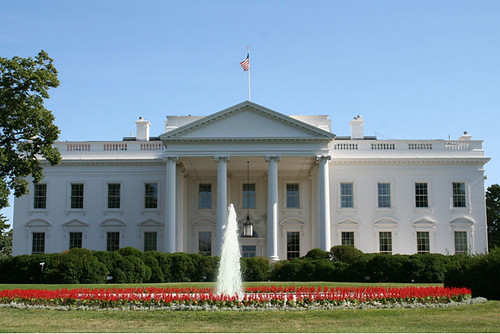
April 15, 2024
Unpacking The Federal Executive Branch, A Conversation With Vanderbilt University Professor David Lewis
Coverage of presidential elections typically hones in on contestants’ competing legislative visions, which in truth, tend to morph considerably when hit by the reality of an intransigent Congress. This prompts an important question: are presidential elections overrated? Well, before drawing that conclusion, consider one of the underrated consequences of a federal election: the potential for a new administration to alter the management of the federal workforce and the operations of individual departments within the executive branch. Although journalists eschew reporting of these consequences in favor of (legislatively focused) policy platforms and rallies, there is a wide body of academic research which investigates the impact of presidential administrations on the federal executive branch’s ability and capacity to fulfill its roles and responsibilities.
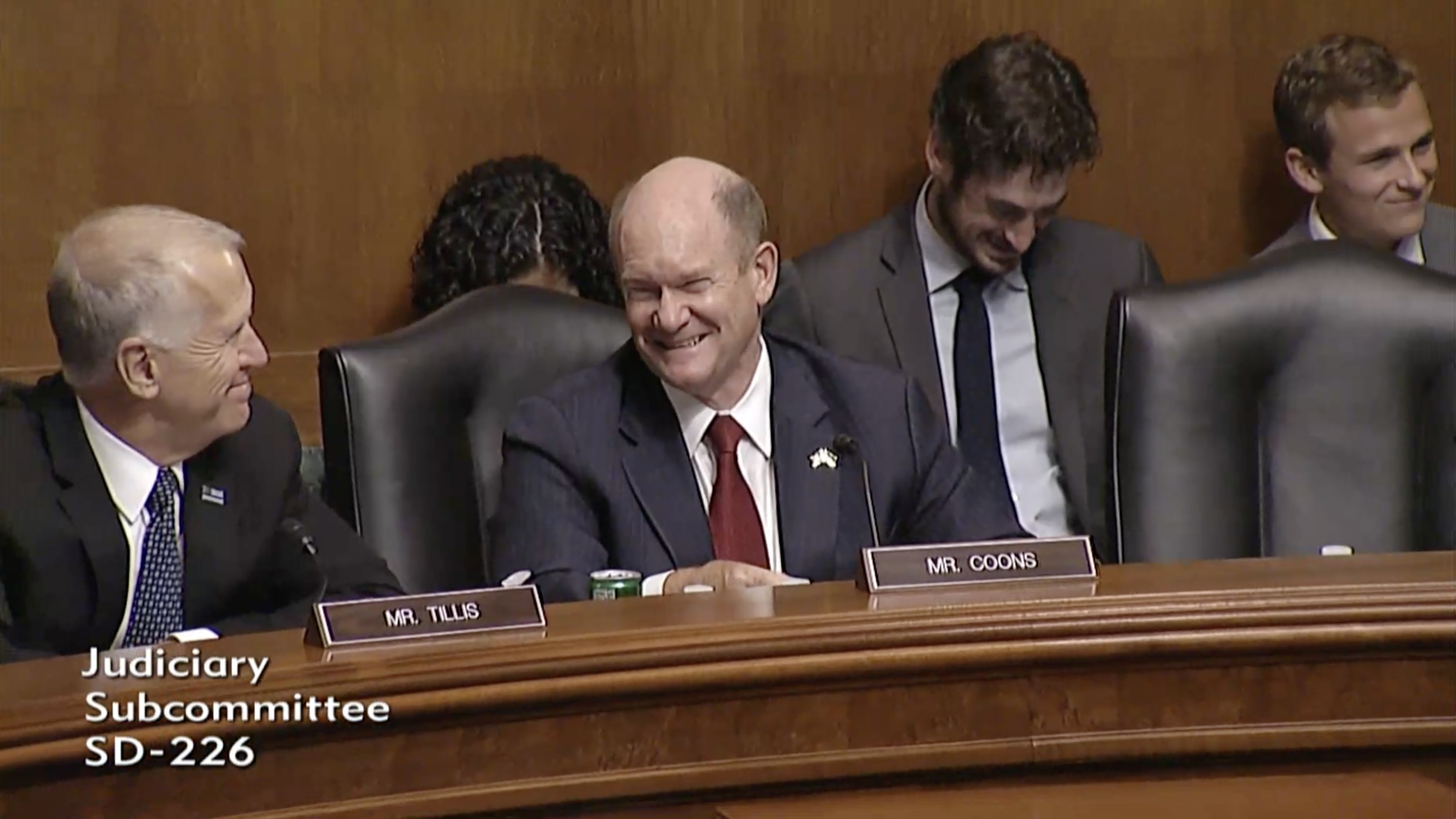
March 29, 2024 | The American Prospect
Senators’ Latest Attempt to Enrich Big Pharma Must Not Prevail
The patent system exists to promote scientific innovation to benefit the public, not to enrich private interests regardless of the merits of their scientific contributions. Yet that is precisely what PERA and PREVAIL would do by granting Big Pharma even more sweeping government monopolies and associated price-gouging power.

March 18, 2024
RELEASE: Virginia General Assembly Must Investigate Leonard Leo’s Influence On State’s Largest Public Research University
Today, the Revolving Door Project, Take Back the Court Action Fund, People’s Parity Project, Freedom BLOC and the George Mason University chapter of the American Association of University Professors sent a letter to members of the Virginia General Assembly calling on them to investigate Leonard Leo in regard to his undue influence on George Mason University. The groups called on the state legislature to investigate what Leo-tied activities are taking place under the aegis of a state school.
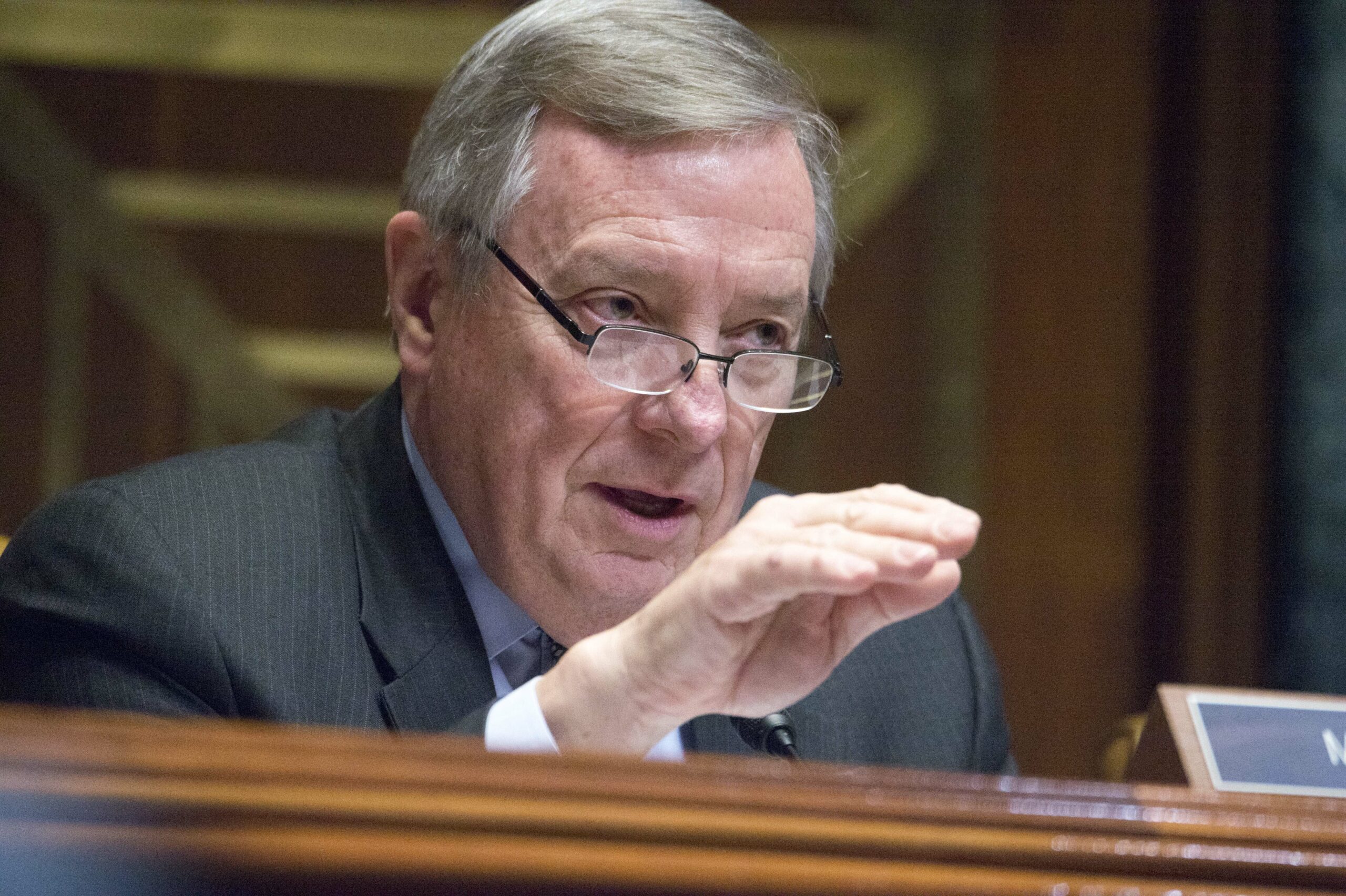
February 09, 2024 | The American Prospect
Durbin Must Enforce His SCOTUS Investigation Subpoenas
Uncovering Crow’s and Leo’s full relationships with the Court is precisely the sort of scenario for which Congress has subpoena powers in the first place. As of now, these plutocrats have been able to scoff at the will of elected leaders. Durbin’s actions, or lack thereof, will inform whether history remembers this Congress as stepping up or shrugging off one of the greatest threats to the American legal system in our lifetimes.

February 02, 2024
RELEASE: Revolving Door Project Applauds House Dems’ Calls For Biden To Fill Postal Board Vacancies
Letter Co-Signed By 80+ Lawmakers Underscores Louis DeJoy’s Destructive Continued Leadership

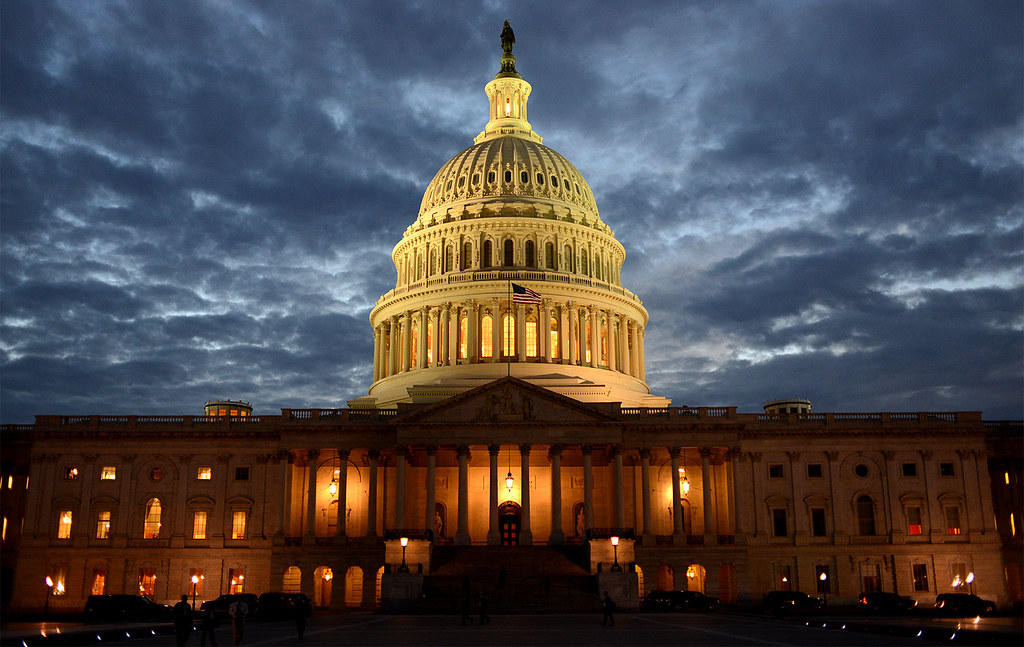
January 10, 2024
Blog Post Climate and EnvironmentCongressional OversightCorporate CrackdownGovernment CapacityHousingIRS
Glossary of Useful Federal Budget Terms
Learning about the federal government’s budget process can be daunting. Here are a few key terms to help better understand of the federal budget process as of late.

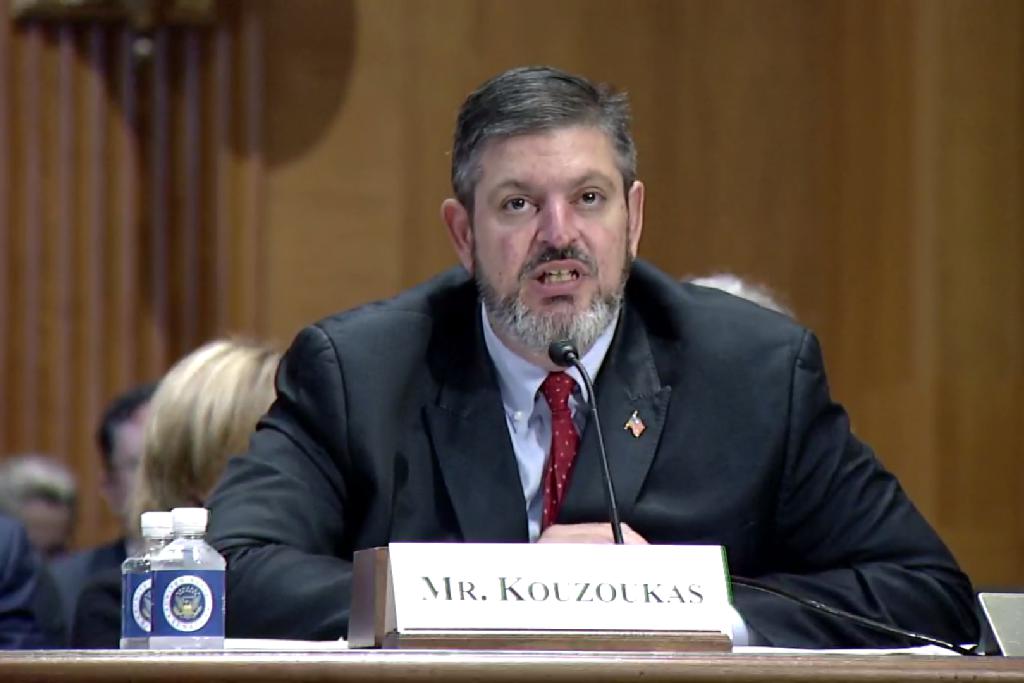
January 08, 2024 | The American Prospect
Democrats Could Score Big by Blocking This Revolver
Demetrios Kouzoukas’s nomination battle offers the perfect opportunity for Democrats to prove themselves to voters.
December 06, 2023 | Revolving Door Project Newsletter
The “Billionaire Matchmaker” and his Bad Amici
How does one right-wing activist get his worst ideas to appear in the legal decisions of the most powerful judges in America? A bombshell Politico investigation this week has the answers on how rightwing activist and “billionaire matchmaker” Leonard Leo managed to influence the outcome of several of the Supreme Court’s highest-profile and most damaging decisions over the past two years.
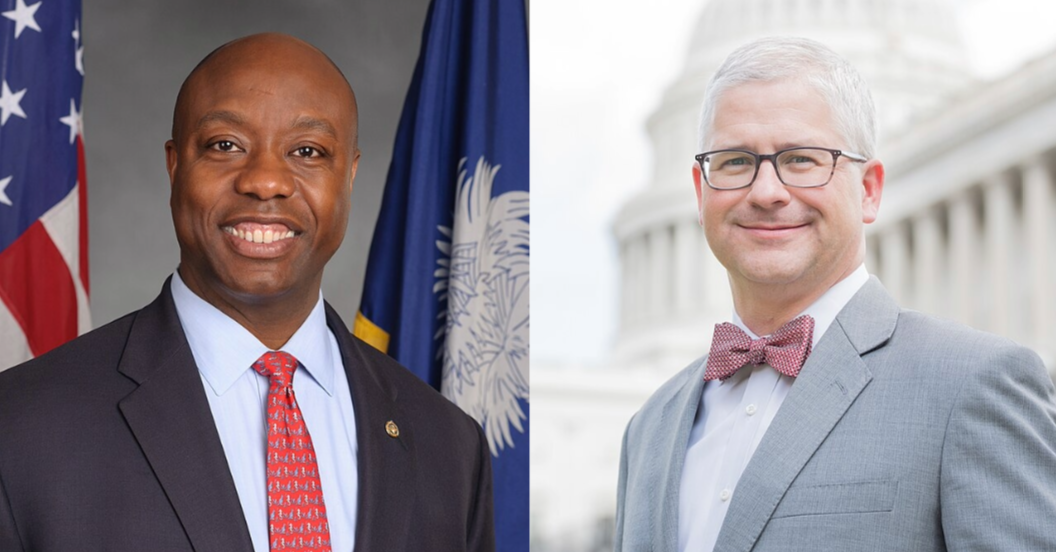
December 01, 2023
Hack WatchNewsletter BankingCongressional OversightConsumer ProtectionFinancial RegulationIndependent Agencies
Wall Street’s Favorite Republicans Are Still Attacking The CFPB
These corporate shills are not “positive pragmatists”, no matter what the mainstream media tells you.

November 17, 2023 | The American Prospect
The Supreme Court’s Objectivity Theater
The Court wrote a new ethics code for itself. It’s all but meaningless.
